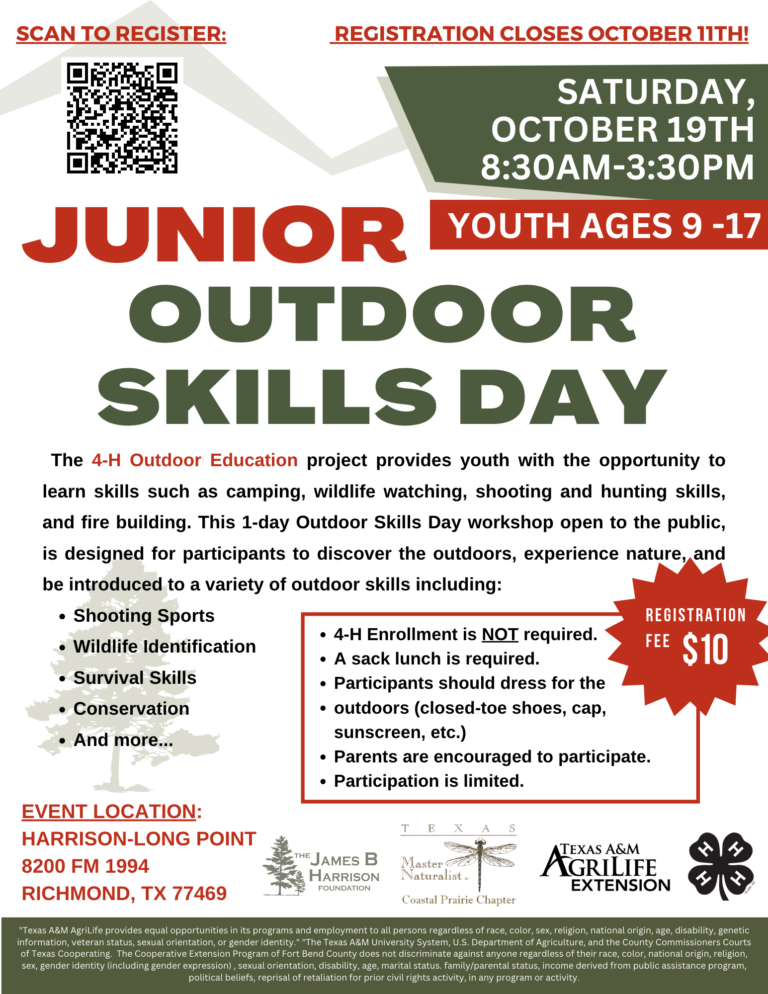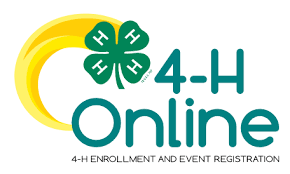Public Speaking
Individuals will present a 5-to-7 minute talk suitable as a platform speech or radio broadcast. The presentation should serve to persuade others regarding a particular issue or concern. Props and visual aids are not permitted and recordings of any type may not be used. Contestants should be prepared to answer questions concerning the subject matter of their presentation. Presentations will be scored with equal consideration of composition and delivery utilizing a score sheet (revised Aug 2005) specific to the Public Speaking Contest
For more information visit: http://texas4-h.tamu.edu/project_speaking/
Educational Presentation
Educational presentations are planned talks in which one or more 4-H members teach others about a project or activity. The talks are ways of sharing useful information and of showing and telling others how to make or do something.
Two types of 4-H educational presentations are demonstrations and illustrated talks. These types of talks are effective because people learn faster and remember longer if they see as well as hear.
The greatest value of demonstrations and illustrated talks, however, is to the 4-H members who plan, prepare, and present them. Every 4-H member profits in some way from planning and presenting an educational presentation. Through these presentations, 4-H’ers can:
- Agriculture & Natural Resources
Youth will relate information to knowledge or skills learned in the field of Agriculture and Natural Resources. Topics may include: agronomy/crop production, farm and ranch economics, horticulture, meat science, shooting sports related fields, as well as any other ANR field of study. Before entering this category be sure presentation does not fit any other related educational presentation category.
- Clothing & Textiles
4-H members present illustrated talks or method demonstrations on any clothing or textile topic. Individuals or teams of up to five demonstrate poise, presentation skills, and knowledge in various areas of clothing and textiles
- Companion Animal
Relate to skills learned in any project concerning the care, companionship, or maintenance of small animals (e.g. dogs, hamsters, fish, etc.). Do not draw from projects included in other Roundup contests or shown as market animals at livestock shows (e.g. poultry, rabbit, swine, natural resources.) Live animals are allowed. Arrangements to house animals’ off-campus must be made ahead of contest week with the contest superintendent.
- Health
Presentations should focus on healthy lifestyles, prevention and wellness, not illness/treatment. It is suggested that project experiences in this area include topics aimed at youth health, wellness and prevention and that the educational presentations be shared with other youth groups in the community to promote healthy lifestyles. All presentations must be supported by science based and current medical/ health journal articles (e.g., Journal of the American Medical Association, Annuals of Internal Guide Medicine.) or research based websites. No .com resources are allowed. Additional resources could come from Texas Agrilife Extension Service, Centers for Disease Control and Prevention, and Texas Department of Health.
- Open
Youth will relate to skills learned in a project in which the 4-H member has been involved. MAKE SURE YOUR PRESENTATION IS NOT BETTER SUITED FOR ANOTHER CATEGORY
- Promote 4-H
The purpose of this contest is to: 1) encourage 4-H members to develop promotion and marketing skills as they market and interpret 4-H through various types of media and presentations, 2) increase the promotion of 4-H to non-4-H audiences in Texas, and 3) increase the number of people who join and support the 4-H program. The 4-H promotion should convey a contemporary image of 4-H in a changing society. Promotional methods might include: radio, television, illustrated talks, method demonstrations, newspaper, posters, projected images, exhibits, photographs, slide/tape presentations, puppets, PSA’s, speeches, drama, skits, videos, computer programs, etc. Contestants identify a non-4-H audience and demonstrate a promotional method which communicates the ideas or ideals of the 4-H program. Before entering this category make sure your presentation does not fit any other related educational presentation category.
- Horse
Presentation is to cover the theory and/or practical skills learned in the 4-H Horse project and should be appropriate for presentation at a 4-H club meeting. After hearing the presentation the audience should be able to put information into practice to improve their production, management, training, or horse use knowledge and/or skills.
- Safety & Injury Prevention
Youth will relate to safe equipment designs and safe procedures or methods associated with the prevention of accidents in work, home, or recreational environments Topics may include accident prevention when operating motor vehicles, boats, home, farm or yard machinery. Also included are safety topics on handling chemicals and animals and prevention of accidents relative to falls, fire, electricity, hunting and natural disasters.
- Sheep & Goat
Relate to the production of sheep and/or goats or to the utilization of their meat, milk, or fiber.
- Beef
This contest allows 4-H members to give an educational presentation on all aspects of the U.S. beef industry. Such topics include reproductive technologies, nutritional management, health, breeding and genetic considerations, behavior, beef carcasses and end-products, production costs, and general management aspects. Presentations may target cow-calf, stocker, or feedlot industry sectors.
For District information and Resources:
http://d94-h.tamu.edu/eventsandcontests/bigtime/educational-presentations/
Leaders 4 Life
The Leaders 4 Life Skill-A-Thon is a three-fold contest that will include the following:
- Parliamentary Procedure Contest – This is a demonstration of a simulated 4-H meeting using a standard agenda, which will be provided. Teams of four to six 4-H members will have 20 minutes to conduct their model meeting in front of a panel of judges.
- Question and Answer with the Judges – Each team will be asked seven questions. Every team member must answer at least one question. Any team member may answer remaining questions. Team members will choose who will answer the extra questions. No team member may answer more than two questions. The questions will be based on parliamentary procedure.
- Community Service Interpretation – Teams will create a one-page (front and back) interpretation piece highlighting one or more community service projects coordinated and conducted by the county 4-H council. This document will be turned in prior to the state contest for judging.
Resource Packet: http://texas4-h.tamu.edu/files/2012/09/4HL4L.001.pdf



